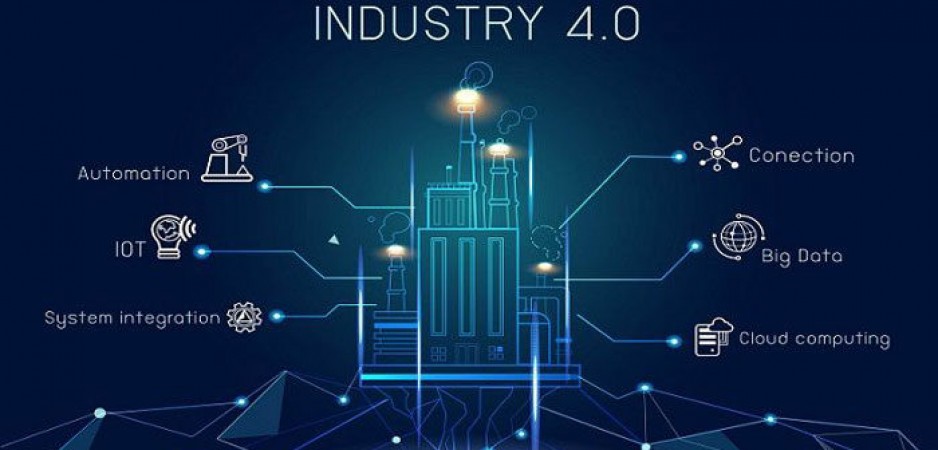
The concept of Industry 4.0 is revolutionizing the world as we know it, bringing unprecedented changes to various sectors. In this article, we will delve into the core aspects of Industry 4.0, exploring its definition, key technologies, impact, and future prospects.
Industry 4.0 represents the fourth industrial revolution, characterized by the integration of advanced technologies into traditional industries, leading to enhanced efficiency, productivity, and connectivity. It encompasses a wide array of technologies and innovations that are transforming manufacturing and other sectors.
What is Industry 4.0?
- Definition and Overview
Industry 4.0 refers to the trend of using smart and interconnected technologies to automate processes and enable data-driven decision-making. It leverages the power of the Internet of Things (IoT), artificial intelligence (AI), big data, and robotics to create a highly connected and automated ecosystem.
- Historical Context: The Previous Industrial Revolutions
Before diving deeper into Industry 4.0, let's briefly revisit the previous industrial revolutions:
Key Technologies Driving Industry 4.0
- Internet of Things (IoT)
The IoT forms the backbone of Industry 4.0, connecting devices and machines to collect and exchange data. This interconnectedness enables real-time monitoring, predictive maintenance, and increased operational efficiency.
- Artificial Intelligence (AI) and Machine Learning (ML)
AI and ML empower machines to learn from data, adapt to new situations, and perform tasks that traditionally required human intelligence. They optimize processes, analyze data patterns, and make autonomous decisions.
- Big Data and Analytics
The enormous amounts of data generated in Industry 4.0 are harnessed through big data analytics. This data-driven approach allows businesses to gain valuable insights, identify trends, and improve decision-making.
- Robotics and Automation
Robots and automation play a crucial role in Industry 4.0 by taking over repetitive and dangerous tasks. They increase productivity and precision while reducing human errors.
Impact of Industry 4.0
- Advantages and Benefits
Industry 4.0 offers numerous advantages, including:
- Challenges and Concerns
However, the implementation of Industry 4.0 also comes with challenges:
Industry 4.0 in Different Sectors
- Manufacturing
In manufacturing, Industry 4.0 streamlines production processes, making them more flexible and efficient. Smart factories leverage data analytics and AI to optimize supply chains and predict maintenance needs.
- Healthcare
Industry 4.0 advancements improve patient care through wearable devices, telemedicine, and AI-driven diagnostics. Remote monitoring and personalized treatment plans revolutionize the healthcare landscape.
- Transportation
Smart transportation systems use real-time data to optimize traffic flow, reduce congestion, and enhance safety. Autonomous vehicles are a significant outcome of Industry 4.0 in the transportation sector.
- Agriculture
In agriculture, precision farming techniques driven by IoT and AI enable optimal resource utilization and crop management. This results in increased yields and sustainable agricultural practices.
- Energy
Industry 4.0 solutions are transforming the energy sector by enabling smart grids, energy-efficient buildings, and better management of energy consumption.
The Future of Industry 4.0
- Potential Innovations
The future of Industry 4.0 promises even more groundbreaking innovations. These may include fully autonomous factories, human-robot collaboration, and advanced AI systems that anticipate human needs.
- Socio-economic Implications
As Industry 4.0 continues to evolve, it will impact society and the economy profoundly. New job roles will emerge, and a shift towards a knowledge-based workforce will be necessary.
Industry 4.0 represents a transformative era, ushering in the fourth industrial revolution. With its interconnected technologies, data-driven decision-making, and automation, it has the potential to revolutionize various sectors. Embracing this technological revolution responsibly is crucial for harnessing its benefits and mitigating its challenges.
Tesla to soon set for India to start assembling at a dwindled rate
AMD Commits $400 Million to Establish Largest Design Center in Bengaluru
Is There Enough Gold in the Earth's Core to Coat the Entire Surface of the Planet?